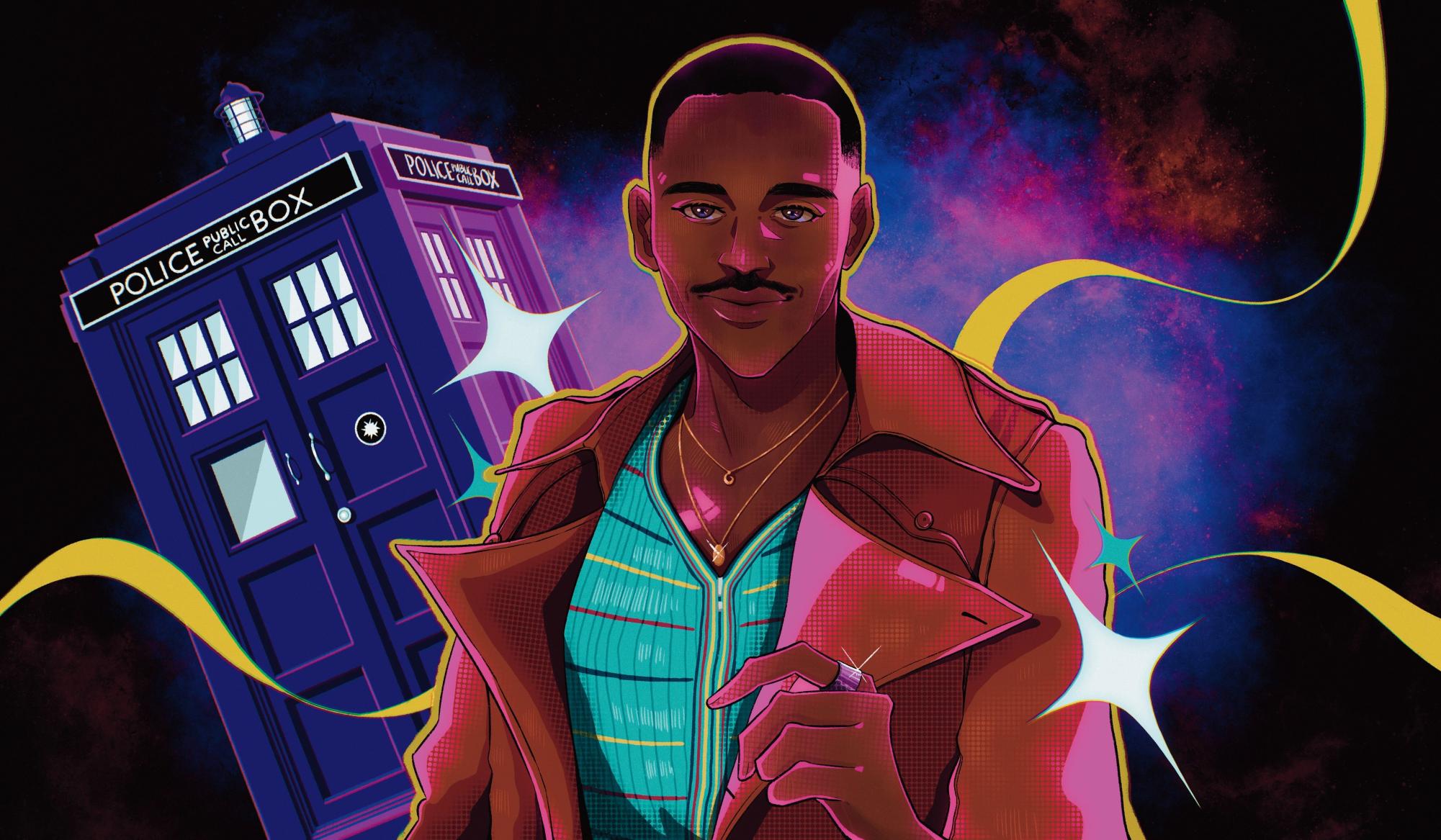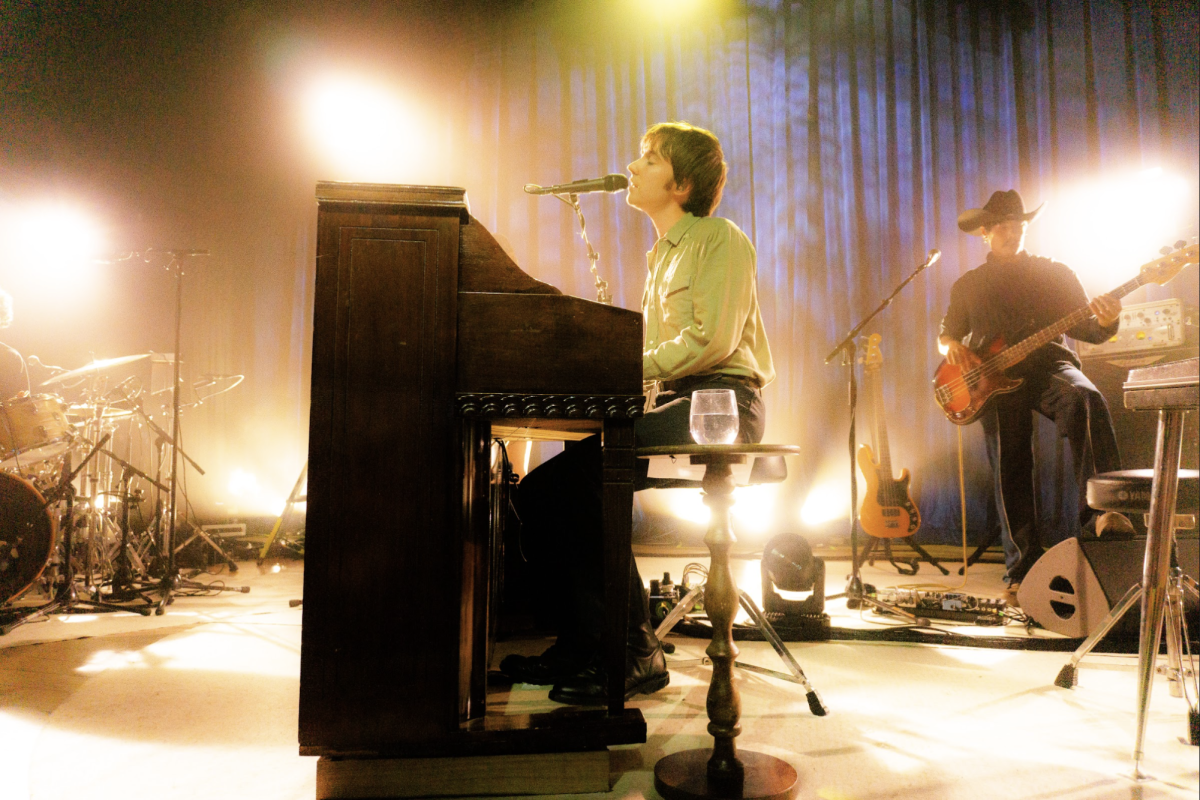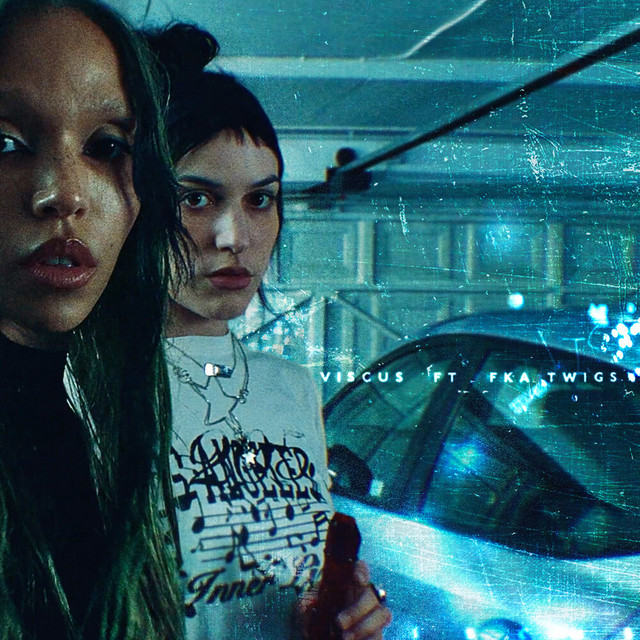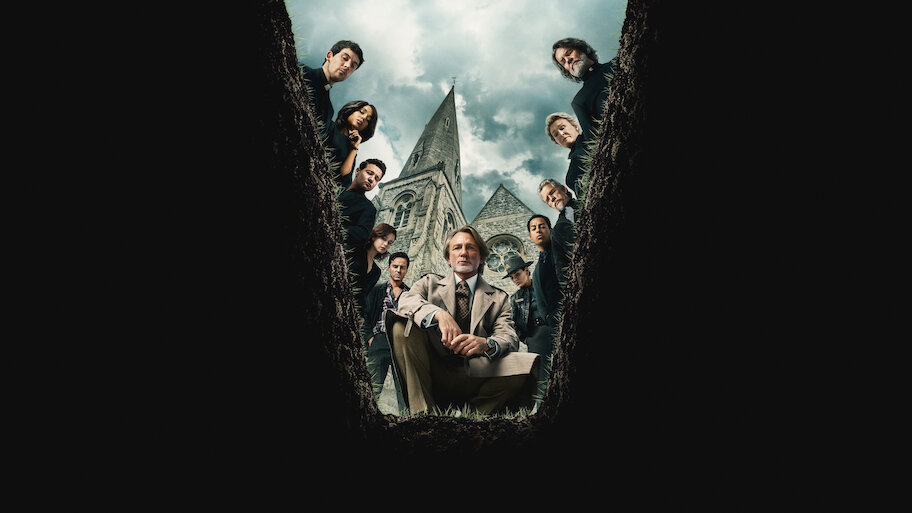All of time and space will be in the palm of our hand once again, when the newest season (“series” in British terms) of Doctor Who lands on our television screens on May 10. There’s been a lot of buzz going around for this latest season, particularly due to its innovative marketing, as well as “Sex Education” star Ncuti Gatwa taking on the main role of the Doctor.
For 60 years, the science-fiction drama has followed The Doctor, an alien time-traveler, alongside his companions, as they venture across the cosmos and different eras, fighting galactic beings and fixing cracks in time. Though it seems daunting to approach such a long-running show, it is not as impenetrable as one may think. The Doctor is portrayed by a new actor every few years, through an in-universe process called regeneration. With every new doctor, the showrunners soft reboot each era as well, affording new viewers a chance to hop along on the joyride. Thus, there are many rabbit holes with which to start your star-spanning adventure. Here’s a few places you can jump into. Ready? Allons-y!
Rose – Series 1 (2005)
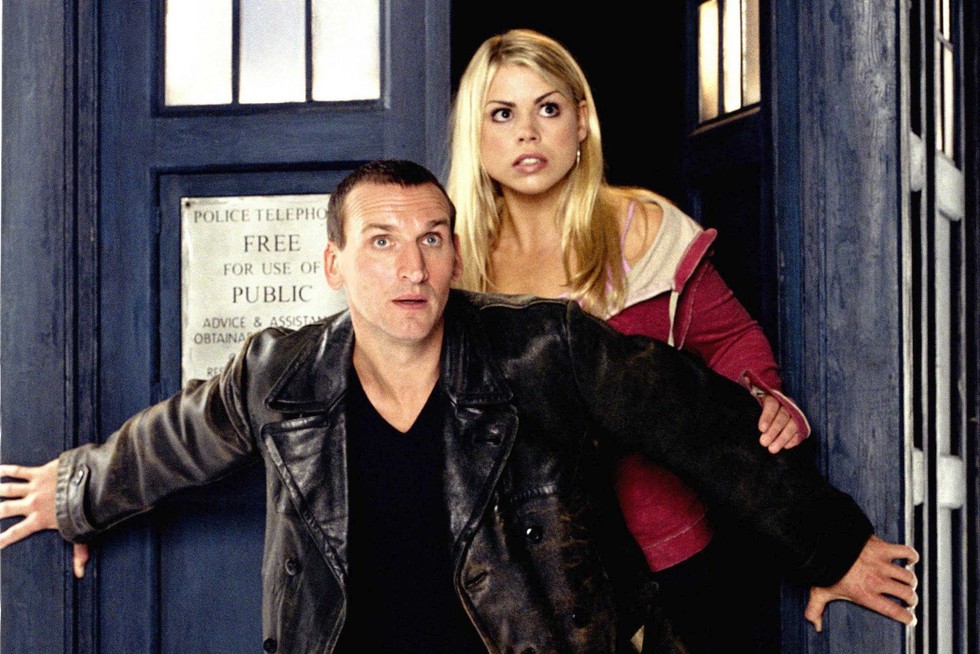
Rose Tyler (Billie Piper) is an ordinary girl who one day gets trapped in a department store by killer mannequins, known as Autons, and is saved by a mysterious figure called The Doctor (played excellently by Christopher Eccleston). From there on out, Rose and the Doctor must take down the Autons and save London, whilst introducing us to Rose’s world: her mother, Jackie Tyler, and her boyfriend Mickey Smith.
“Rose” is a perfect place to start because it was designed as a perfect introduction to this world. For context, “Doctor Who” can be split into two eras: Classic Who, and New Who. Classic Who is full of cheap cardboard sets and clunky sound design, which eventually led to its mass ridicule and cancellation. When “Doctor Who” was revived in 2005, Showrunner Russell T. Davies grounded the series immediately with the revival’s pilot, “Rose.” Davies infused the world with a street-smart tonality, while simultaneously imbuing the drama with the operatic sensibilities of “Buffy the Vampire Slayer.” Yet, the real magic is in the perspective: this is Rose Tyler’s story. Her relationship with the Doctor, as well as her coming-of-age, will be what shapes New Who’s journeys to come. Sometimes a little wacky, but always human and always fantastic, “Rose” is magic.
The Eleventh Hour – Series 5 (2010)

On a starry night in 1998, young Amelia Pond finds an exploded 1963 Police Box, called the TARDIS, in her backyard, and out pops a raggedy man, the Doctor (Matt Smith), who then becomes her best friend. The TARDIS can travel across all of time and space, and though the Doctor has to leave to fix his TARDIS, he promises to take her across the universe. He miscalculates, and comes back 12 years later, right as the world is about to end. Can the Raggedy Man fix his relationship with a now-adult Amy Pond (Karen Gillan, in her breakout role), and stop the invasion of Prisoner Zero?
A soft reboot by then-incoming-showrunner Steven Moffat shapes the story as a fairy tale akin to Peter Pan and uses the concept of missed time in subtly heartbreaking ways. It’s a fantastic single-location episode that’s constantly reinventing the stakes to greater dramatic degrees, all propelled by the brilliance of composer Murray Gold. This new 11th incarnation of the Doctor is written to be more hyperactive, more intellectual (in the vein of Sherlock), and more fun, yet still is as kindly and good-hearted as all Doctors are. Moffat’s 11th Doctor era is widely considered to be messy, but this introduction is a favorite to anyone who has watched it.
Mummy on the Orient Express – Series 8 (2014)
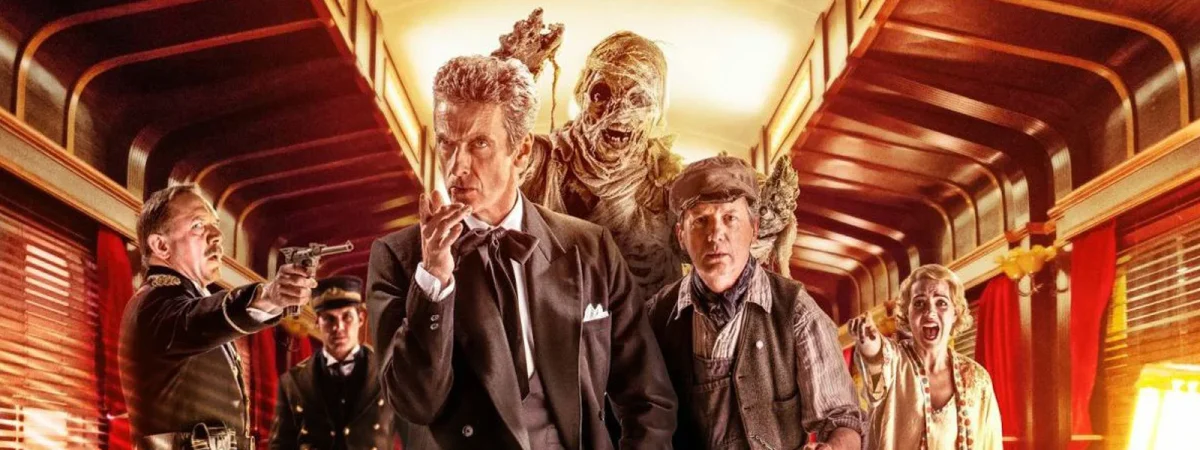
As the relationship between the 12th Doctor (Peter Capaldi) and companion Clara Oswald (Jenna Coleman) breaks down in toxicity, he promises one final adventure, a night on the galactic railway. Their evening, however, is disturbed by a serial killer. Aboard this space-bound Orient Express, passengers are killed off slowly by a mummy whom only they can see moments before their death. What unravels is a murder mystery, unfolding in ways only a “Doctor Who” episode can do.
Though it is not the introductory passage to Peter Capaldi’s brilliant tenure, this episode captures all that “Doctor Who” is: intelligent, genre-bending, a little spooky, and deeply empathetic, even when the Doctor themself seems to be at their coldest. Capaldi’s portrayal is one to watch out for, particularly in how he grows as a person, and his callous nature provides an interesting subversion to the usual warmth of a Doctor. Most of all, the script by writer Jamie Mathieson is just so much fun. This is where I started, and I’ve never looked back since.
Demons of the Punjab – Series 11 (2018)

Companion Yaz (Mandip Gill) receives a watch from her Nan and travels back in time alongside the 13th Doctor (the first female incarnation of the Doctor, played wonderfully by Jodie Whittaker) and her friends Graham and Ryan, to India, right as violence erupts in the wake of the 1947 partition of India. At the same time, aliens are seemingly meddling with time in nefarious ways, and the Doctor investigates and attempts to stop them. These all collide on the wedding day of Yaz’s Nan, and the future begins to look more uncertain.
Jodie Whittaker’s tenure was rife with criticism, being a target for right-wing pundits, yet to the average viewer, people felt the show had lost its penchant for characterization, as third showrunner Chris Chibnall felt more preoccupied with procedural storytelling as opposed to drama. That is not the case with “Demons of the Punjab.” It’s all pathos and all character dynamics. While “Mummy on the Orient Express” captures the cosmic aspect of New Who, this nails down the time aspect of the show. An utterly soul-shattering story about lost love and heritage, it’s where Jodie Whittaker’s Doctor truly comes into her own, as a unifier of the people. The on-location filming is spectacular to look at, Whittaker’s unwavering (and sometimes reckless) bubbliness is finally grounded, and the episode becomes a true testament to the introspective nature of historicals that only “Doctor Who” can pull off. Don’t miss this one.
The Church on Ruby Road – Season 1 (2023)
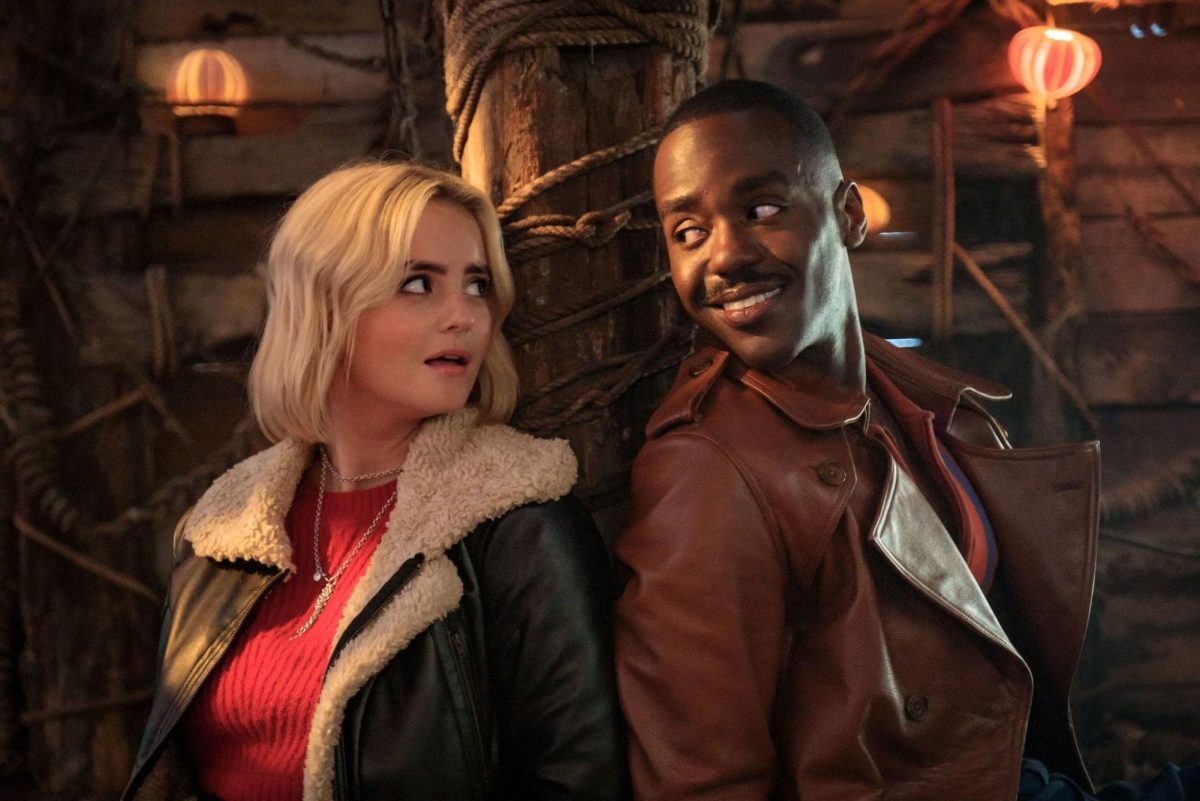
On a snowy Christmas Eve, a baby is left on the steps of the local church on Ruby Road. Nineteen years later, that baby grows up to be Ruby Sunday (Millie Gibson), who is on the hunt for her birth mother. An inane string of misfortune befalls her, culminating in her new sibling being kidnapped by … goblins? The one bit of good luck she’s had is running into the elusive Doctor (Ncuti Gatwa), but can he reunite Ruby and her sister for a Christmas miracle?
Davies’ return to Doctor Who as showrunner was widely heralded, and his proper re-entrance (after last year’s divisive 60th Anniversary Specials) is an absolutely joyous time. This is a new era for the show, down to the relabeling of this new season as “season one.” There’s more fantastical elements bleeding into the universe, the monsters are newer, and the 15th Doctor is a revelation. Ncuti Gatwa brings an unbridled optimism and energy that’s never been seen before. He’s just as, if not more, magnetic than his take on Eric Effiong in “Sex Education.” His new Doctor is sassy, deeply compassionate, yet soulful and calculated. It is from here that you can begin to watch the new season, airing May 10.
From the relabeling of this upcoming season to this fresh injection of youthful energy with Gatwa and Gibson, Davies clearly wants everyone, old and new, on board for years and years of “Doctor Who” that’ll be absolutely spectacular. “Doctor Who” is a show that means the world to many different people, and its constant metamorphosis remains forever exciting. I will love “Doctor Who” for the rest of my life, and maybe after watching these episodes and more, you will too. Wherever the TARDIS takes us, I know in my heart that this will be the adventure of a lifetime.
Art by Michelle Deng



